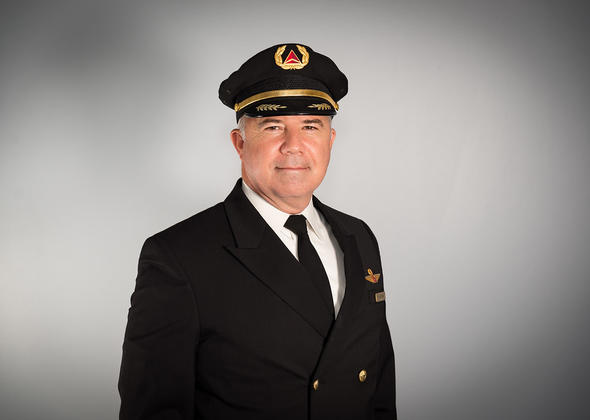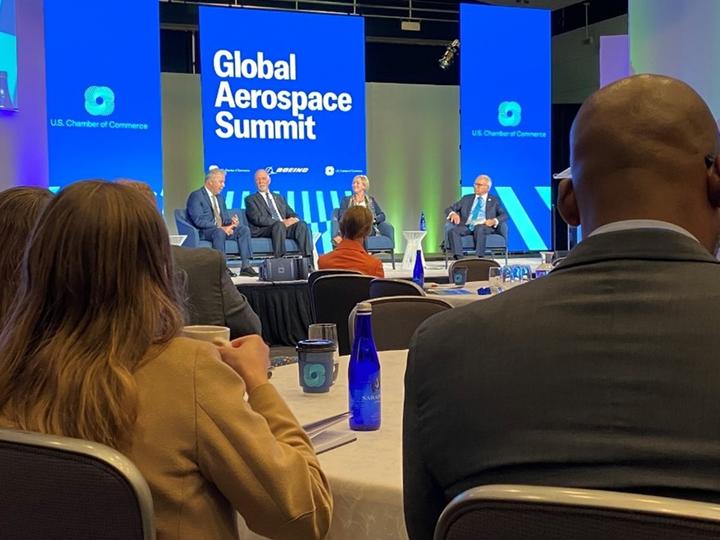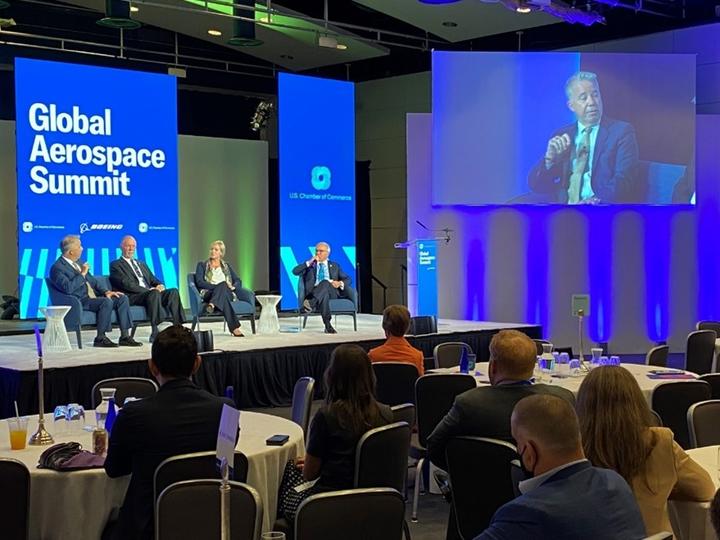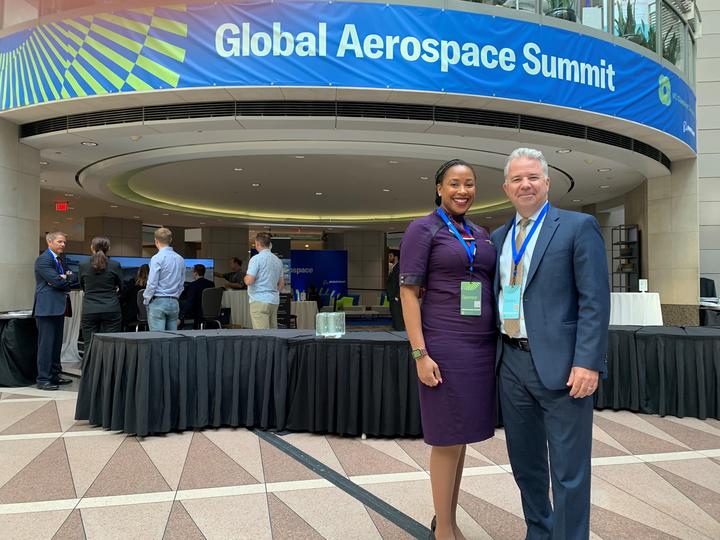How Delta lights the way for future aviation professionals
Capt. Patrick Burns is Vice President-Flight Operations & System Chief Pilot for Delta Air Lines. He oversees all aspects of administrative and day-to-day operations for more than 14,000 pilots. Additionally, he directs the strategy of Delta’s pilot hiring and outreach team, regulatory compliance and pilot labor relations.
Patrick is currently based in Atlanta, flying the Boeing 717.
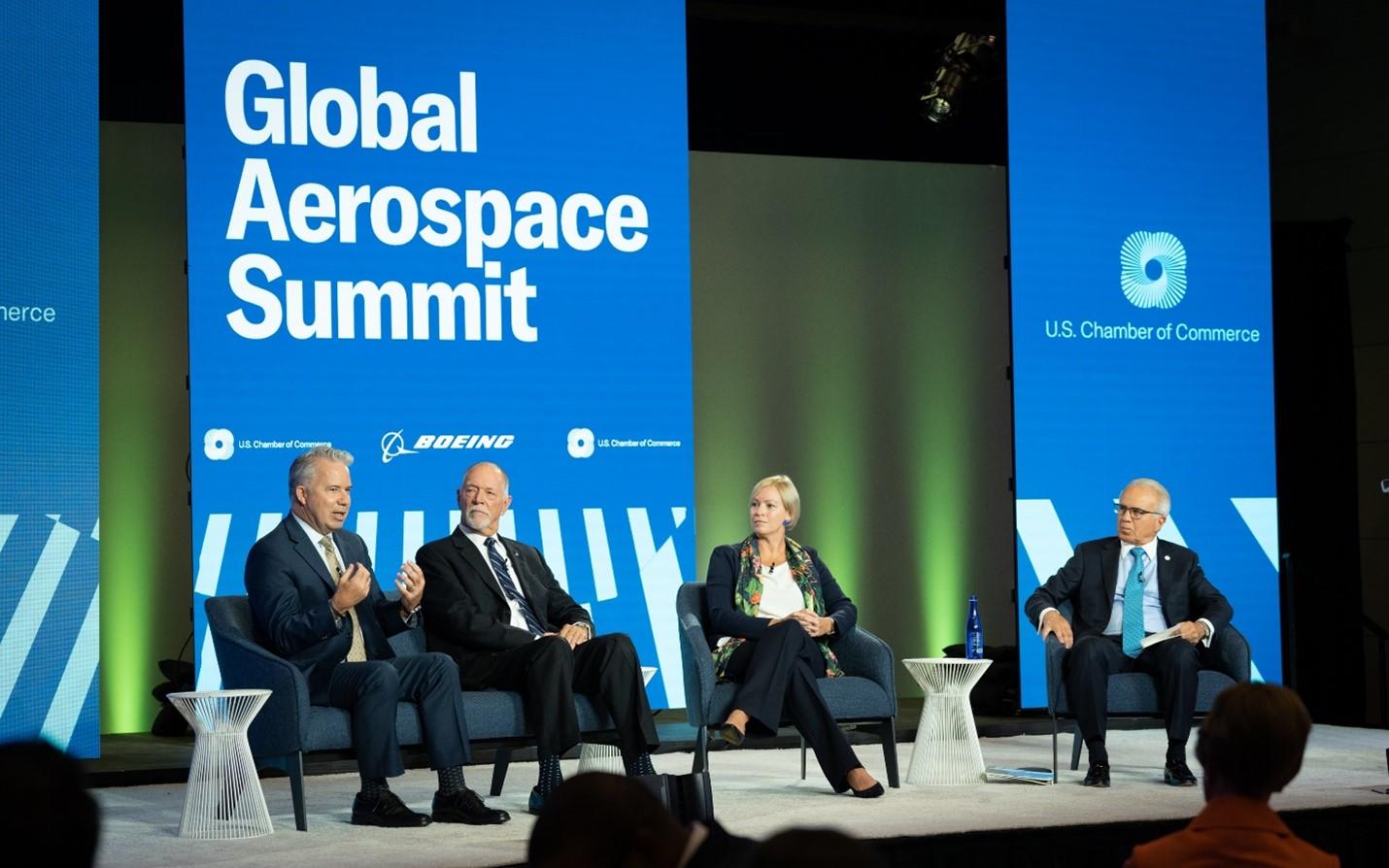
I had the distinct honor last week to represent Delta at the U.S. Chamber of Commerce’s Global Aerospace Summit in Washington, D.C. I was there to talk about several issues that are important to Delta and near and dear to me, including how the airline industry can foster a strong talent pipeline, what our needs are in the years ahead, and what Delta is doing to both serve our communities and diversify our skilled teams of aviation professionals.
As we know, there are barriers to entering this profession. In addition to the financial challenges, many people, and especially those in underserved communities, don’t have someone to show them the way, a mentor to guide them through the steps necessary to log flight hours, to direct them to top-notch training facilities, and to model what in addition to flight hours is important to be a professional pilot. That’s where Delta comes in. We’re going to knock down any barriers we can and, in the process, demonstrate why no one better connects the world.
At the Global Aerospace Summit, I shared how, whether you’re a student in a college aviation program, a professional in another role who is building your skillset on the side, or simply a child looking at the clouds and wishing you were up there, too, Delta has a pathway to help you join our team.
I can relate to some of these challenges. In 1989, I started on the ramp at the Philadelphia International Airport which was a necessary step in my journey after funding much of my own college education. Now, I had to earn money for flight training, and I worked in every above- and below-wing department at Delta for several years. My family supported me the best they could, and I borrowed enough money to complete my training. After flight instructing and regional airline flying, I worked my way back to Delta and my dream job in 1999.

The next generation of pilots and aviation maintenance technicians
We expect to need approximately 8,000 pilots over the next 10 years as our current professionals reach mandatory retirement age. We expect a great need for skilled mechanics in our TechOps ranks, as well. Industry projections suggest that over the next 20 years, more than 600,000 aviation maintenance technicians (AMTs) will be needed to meet total demand. We knew this before the pandemic, and the rapid contraction and then expansion of our industry magnified these needs for highly skilled people. As a result, we supercharged our hiring and talent pipeline programs.
Today, Delta Flight Operations, through our Propel Pilot Career Path Program, works with 15 premier aviation programs at universities across the U.S. to offer students a defined, accelerated path to becoming a pilot. Two of these are Historically Black Colleges and Universities. Another is located in Puerto Rico. As I discussed with my fellow panelists at the Global Aerospace Summit, the hiring challenges we have in front of us give us the awesome opportunity to build a diverse, inclusive workforce and to offer incredible careers to talented, highly skilled professionals who are underrepresented in our industry today.
Current Delta employees meeting the eligibility requirements can also apply for the Propel Company Pilot Career Path. Successful candidates will receive a Qualified Job Offer (QJO) for a pilot position with Delta.
Delta’s Community path inspires young people to pursue careers as pilots. We partner with several organizations that share this same goal, including Women in Aviation International, the Organization of Black Aerospace Professionals, the National Gay Pilots Association, the National Intercollegiate Flying Association, and new partnerships are on the horizon. These organizations share their top talent for consideration in Propel and receive the same QJO that applies to participants in the College Path. Delta provides financial investment through scholarships and sponsorships to these diversity-focused partner organizations in alignment with our goal to create more equitable access to training and mentorship for future pilots.
In total, Delta has 539 participants currently in the Propel program, which is growing every year. We have been hiring more than 200 pilots per month this year and anticipate hiring to continue in support of our long-term goals.
In order to keep the pipeline of AMTs growing, Delta established TechU, which is focused on creating a clear pathway for future AMTs. TechU extends from community outreach to collaboration with educational institutions, the U.S. military and our partner organizations. We’re currently partnered with more than 50 of the best Airframe and Powerplant schools across the country. Delta supports these schools with training content, resources and access to Delta TechOps expertise.
Since the beginning of this year, Delta has hired more than 1,500 AMTs. As a pilot, I admire and trust these professionals as critical members of the operations team. These are incredible technicians, and it’s a highly coveted, high-paying career option that is vital to the aviation industry.
Lighting the way
The purpose of the Global Aerospace Summit was to bring together leaders from commercial aviation, space, and defense for conversations that drive our industry forward. Delta knows exactly what powers our airline – it’s our people. Each of us in the airlines business today has a responsibility to serve our communities and our fellow human beings, to make things just a little better every day for those who come after us. That Delta spirit of community and service is the torch that ignites the beacons of opportunity, and it will light and widen the pathways to pilot, AMT and other careers for generations of aviation professionals to come.
About the U.S. Chamber of Commerce’s Global Aerospace Summit
This yearly event is held in Washington, D.C. and was back for the first time in two years. The Summit is attended by industry leaders, government officials and media. A4A CEO Nick Calio moderated the workforce development panel where Patrick Burns spoke. Topics throughout the two-day summit addressed challenges and opportunities on issues such as the future of connectivity, international industry collaboration, workforce development, and innovations advancing opportunity in space and aviation.
Learn more on the U.S. Chamber of Commerce website.
